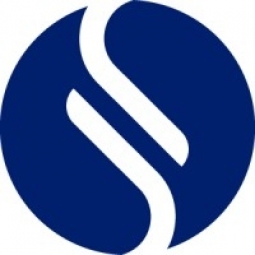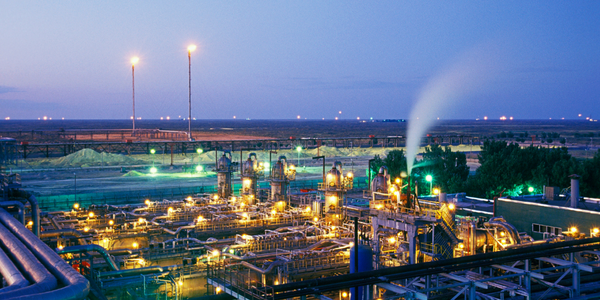Download PDF
Oil & Gas Industry Excellence Award Winner Spectra Energy
Technology Category
- Analytics & Modeling - Real Time Analytics
- Functional Applications - Enterprise Resource Planning Systems (ERP)
Applicable Industries
- Oil & Gas
Applicable Functions
- Maintenance
- Quality Assurance
Use Cases
- Predictive Maintenance
- Regulatory Compliance Monitoring
Services
- Data Science Services
- System Integration
The Challenge
Spectra Energy, a FORTUNE 500 company, is one of North America's premier pipeline and midstream companies. It has a commitment to sustainable operations and has been recognized by a host of independent organizations for its efforts. To deliver on these commitments, the company relies on its Environmental Performance and Safety System (EPASS). It standardizes processes for collecting and managing an array of environmental, health and safety (EHS) data, and then shares key aspects of that information both inside and outside of the company. EPASS also supports methodologies for calculating and reporting greenhouse gas (GHG) emissions that are consistent with accepted industry guidelines from the Global Reporting Initiative and World Resources Institute. The company faced a challenge when the U.S. Environmental Protection Agency (EPA) implemented its landmark Mandatory Reporting Rule, which applies to companies emitting 25,000 metric tons or greater of greenhouse gas emissions. Under current MRR’s Subpart C and Subpart W requirements, Spectra Energy initially was required to report combustion emissions data at 25 U.S. facilities.
About The Customer
Spectra Energy is a FORTUNE 500 company and one of North America's premier pipeline and midstream companies. Based in Houston, Texas, the company’s operations include more than 22,000 miles of natural gas, natural gas liquids, and crude oil pipelines, approximately 305 billion cubic feet of natural gas storage, as well as natural gas gathering and processing, and local distribution operations with more than 1.4 million customers. Spectra Energy has served North American communities for more than a century. Its long-standing commitment to sustainable operations has been recognized by a host of independent organizations. Spectra Energy has been listed on the Dow Jones Sustainability North America Index (five consecutive years), the Dow Jones Sustainability World Index (three years), the Carbon Disclosure Project 2012 CDP Global 500, and has been listed on the S&P 500 Carbon Disclosure Leadership indexes for five consecutive years. In addition Spectra Energy has been named to the Ethisphere Institute’s World’s Most Ethical Companies list in 2012 and 2013.
The Solution
Spectra Energy has been using EPASS to manage air emissions – including GHG – since 2008. The EHS team uses Essential Suite to track GHG emissions by source type such as reciprocating engines or centrifical compressors and for specific pollutants such as carbon dioxide or methane. The system calculates GHG emissions for the individual sources that are utilized for MRR reporting as well as other corporate level internal and external reporting. For many of these sources, information is collected on a monthly basis, but EPASS can be configured to easily allow weekly or even daily calculations if the need arises. As a result, Spectra Energy had a head start in compiling GHG data for MRR reporting. Most of the data needed was already captured and accessible in EPASS, so the team was able to focus on collecting any additional data and building the bridge between the Sphera Essential Suite database and EPA’s Greenhouse Gas Reporting Tool (e-GGRT) platform.
Operational Impact
Quantitative Benefit
Related Case Studies.

Case Study
Taking Oil and Gas Exploration to the Next Level
DownUnder GeoSolutions (DUG) wanted to increase computing performance by 5 to 10 times to improve seismic processing. The solution must build on current architecture software investments without sacrificing existing software and scale computing without scaling IT infrastructure costs.

Case Study
Remote Wellhead Monitoring
Each wellhead was equipped with various sensors and meters that needed to be monitored and controlled from a central HMI, often miles away from the assets in the field. Redundant solar and wind generators were installed at each wellhead to support the electrical needs of the pumpstations, temperature meters, cameras, and cellular modules. In addition to asset management and remote control capabilities, data logging for remote surveillance and alarm notifications was a key demand from the customer. Terra Ferma’s solution needed to be power efficient, reliable, and capable of supporting high-bandwidth data-feeds. They needed a multi-link cellular connection to a central server that sustained reliable and redundant monitoring and control of flow meters, temperature sensors, power supply, and event-logging; including video and image files. This open-standard network needed to interface with the existing SCADA and proprietary network management software.

Case Study
Refinery Saves Over $700,000 with Smart Wireless
One of the largest petroleum refineries in the world is equipped to refine various types of crude oil and manufacture various grades of fuel from motor gasoline to Aviation Turbine Fuel. Due to wear and tear, eight hydrogen valves in each refinery were leaking, and each cost $1800 per ton of hydrogen vented. The plant also had leakage on nearly 30 flare control hydrocarbon valves. The refinery wanted a continuous, online monitoring system that could catch leaks early, minimize hydrogen and hydrocarbon production losses, and improve safety for maintenance.








